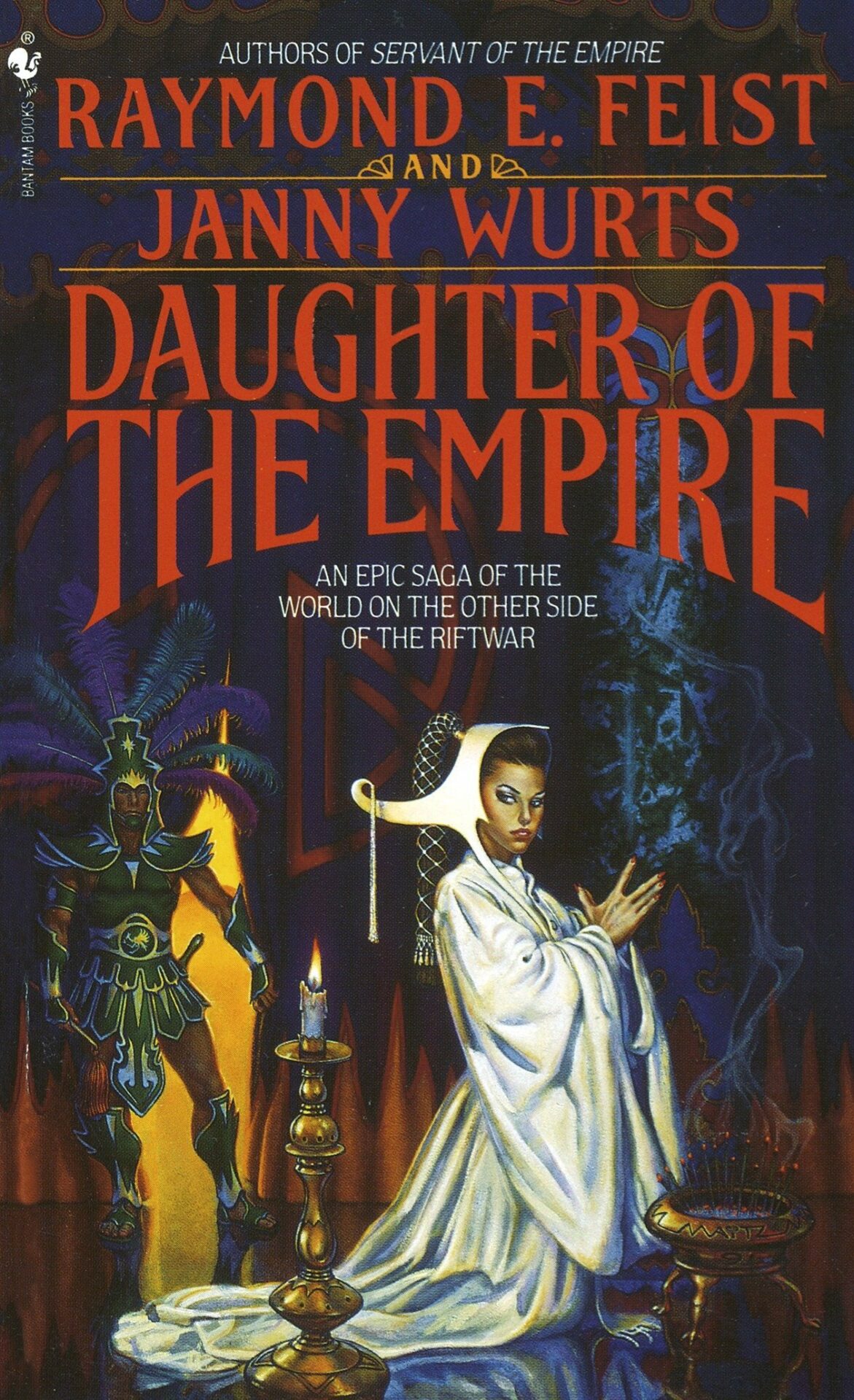When two top authors combine to write a series, you’re bound to find an engrossing series at the very least, and this one doesn’t fail to disappoint.
Following the sudden death of the rest of her family, Mara of the House Acoma is thrust deep into the jaws of intrigue and politics so deadly… But her enemies are numerous and powerful. She must muster all her natural wit charm (which might not even be enough) to secure the continuity of her family name while at the same time plotting vengeance against the foremost of her enemies, all the while trying to stay afloat in social relevance in the deadly Game of the Council.
It’s a fine story with many fundamental fantasy thematic tropes: politics, intrigue, and numerous plots. It’s fairly simple: deal with your enemies trying to bring you down. It’s so much more difficult because of the main character’s poor position at the book’s start. But in a slow but steady character development spell, she proves adept at plotting and shows resilience and determination that belies her youth and inexperience in such matters. She sets about placing the foundations for her House’s financial, social, and, finally, political success.
The story is told from a very narrative/descriptive point of view. Rather than a lot of dialogue, it’s written in a sort of passive narrative with dialogue only where necessary. It’s a style that could put off a reader if they’re not used to Feist, but I found it good enough.
With all the plotting and schemes going on, one would be forgiven for not giving apt credit to the excellent world-building. Being a fan of Feist’s former series set in this world, it’s once again delightful to read about the cultures and peoples of Tsurani. The cultures greatly stand out: many unique practices and traditions are related to honor and social structure. Parallels can even be drawn with some modern-day practices and ideals: respect, feminism, inheritance and lineage systems, politics, political and economic systems.
I will subsequently proceed to the next book to see what happens next. There are bound to be several surprises.























